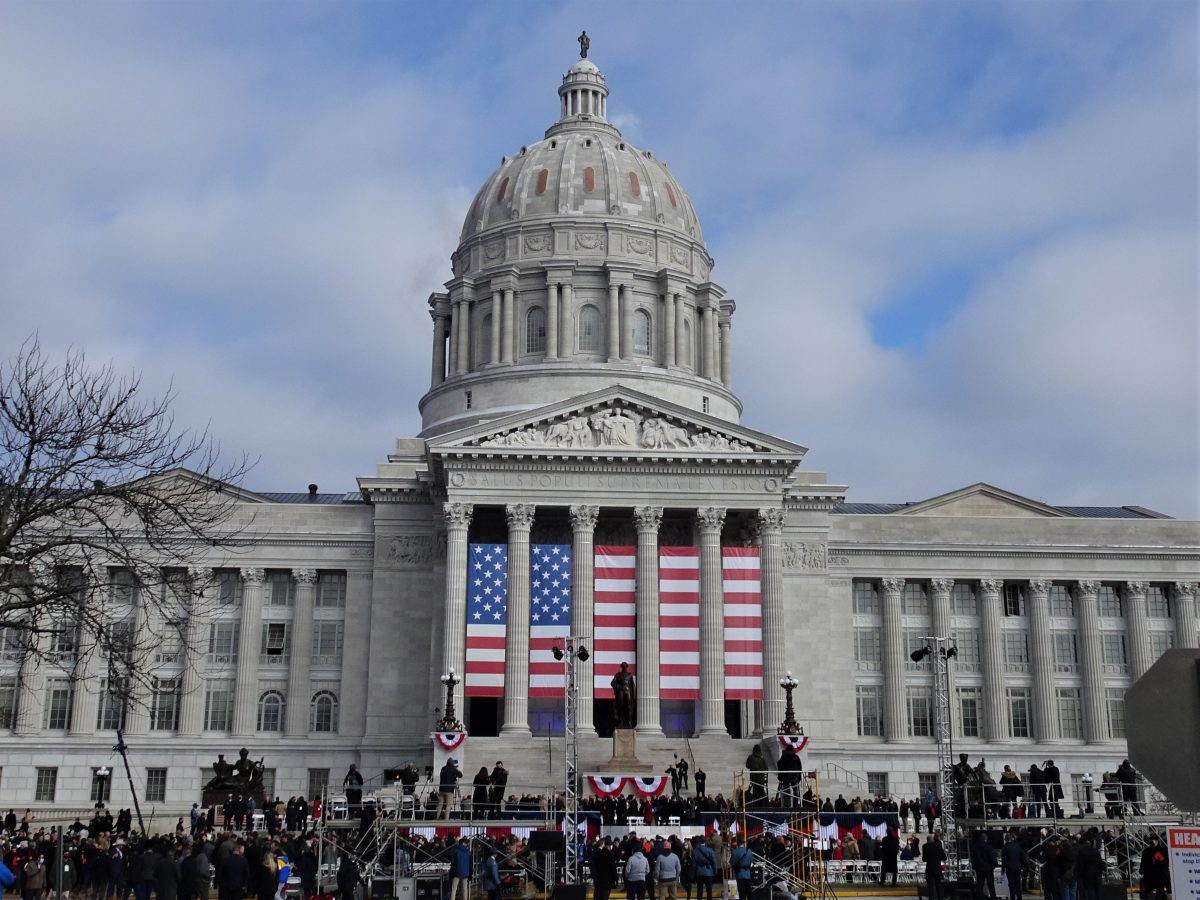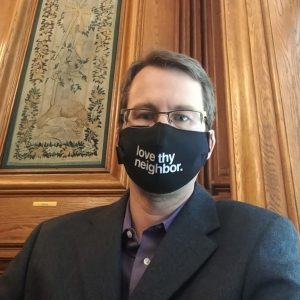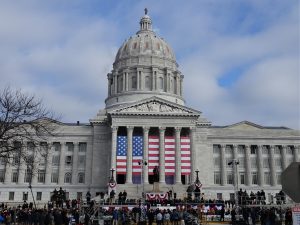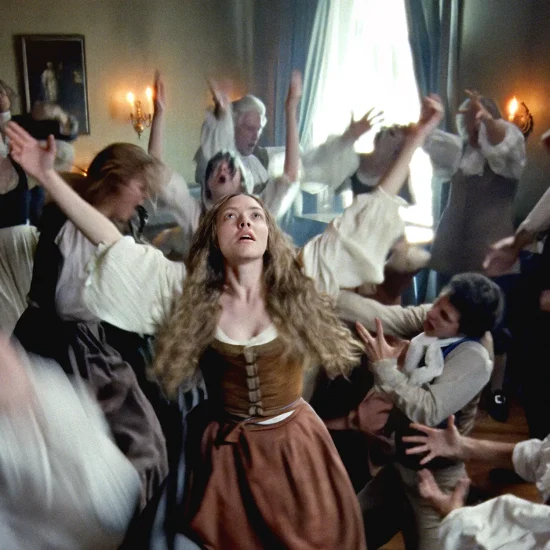
(Missouri Independent) — Even before we are out of the coronavirus pandemic, Missouri’s lawmakers are considering bills that would make it more difficult to keep people safe in a future pandemic.
And several bills would also upset our healthy church-state balance by carving out a special pandemic privilege for religious groups. As a Baptist minister who takes seriously the biblical teachings to love my neighbors, I oppose such legislation.
While lawmakers fight off coronavirus outbreaks among themselves, a top legislative priority this session quickly emerged: taking power away from local officials during a health emergency. Refusing to accept insights from scientists and medical professionals, these maskless lawmakers insist they know better and should alone decide what health-related restrictions are acceptable.

Brian Kaylor sitting in the Missouri Senate hearing room before testifying on Jan. 20, 2021.
Most of the bills focus on concerns about restaurants and other businesses, but several would also create a broad religious exemption for houses of worship from any local or state pandemic order. I testified against three Senate bills last month not because I do not care about religious liberty, but precisely because I cherish religious liberty for all.
I do worry about government infringing on our free exercise rights. But we need to remember that our First Amendment includes two religion clauses. And we must respect them both—not just the Free Exercise Clause but also the Establishment Clause. These two clauses sit together and thus demand balance. The problem with those Senate bills and several similar ones in the House is they have no such balance.
While all the bills rightly advocate for free exercise rights, they swing too far in the other direction by infringing on the Establishment Clause. But that clause is also important to protect true religious liberty. To carve out a special pandemic privilege just for religious adherents is to favor religion over non-religion. It is to grant special rights to religious individuals and groups that are not given to nonbelievers. That is, to violate the Establishment Clause.
During the COVID-19 pandemic we have seen examples of governments going too far by infringing on the free exercise rights of houses of worship. And the courts have stepped in to override those rules that wrongly targeted religious institutions. But the courts have also rejected many of the challenges brought by houses of worship because the courts noted that religious gatherings in those cases were being treated like similar gatherings. That’s the balance we need and that these bills lack.
Religious gatherings should be treated like similar gatherings. Houses of worship should not be hit with harsher rules than similar organizations. But religious gatherings should not be exempt from the same life-saving health rules to which similar gatherings are subjected. Simply put, there shouldn’t be a pandemic privilege for religion.
A virus like COVID-19 doesn’t stop at the door of a church, nor does the virus care if a mass gathering is religious or not. That is why numerous church worship services, unfortunately, became super-spreader events during this pandemic.

Missouri Capitol on Jan. 11, 2021. (Brian Kaylor/Word&Way)
The current proposals by Missouri lawmakers do not follow the balance required by our First Amendment or that many officials and courts have wisely tried to implement over the past ten months.
For instance, Senate Bill 21 by Sen. Andrew Koenig would prevent officials from imposing any restrictions “directly or indirectly” on “the free exercise of religion” during “a declared state of emergency.”
After I testified against his bill, Koenig berated me for suggesting that governments could make any rule impacting religious worship. But we do all the time. Houses of worship are already subject to many safety restrictions, like building and fire codes. The same standard should apply to pandemic rules.
And Missouri’s Religious Freedom Restoration Act also notes that governments can restrict “a person’s free exercise of religion” if the government can show a “compelling governmental interest” (like saving lives) and “the restriction is in the form of a rule of general applicability, and does not discriminate against religion, or among religions.” That is, governments can impose mass gathering bans that limit religious gatherings during a pandemic as long as the rule applies to religious and non-religious groups.
To exempt religious gatherings and organizations from the common-sense health rules imposed on similar events and groups does not respect religious liberty but instead violates it. This pandemic privilege for religion will not only upset our healthy constitutional church-state balance but will also endanger lives.
This piece was originally published by Missouri Independent and authored by Brian Kaylor. Missouri Independent is part of States Newsroom, a network of news outlets supported by grants and a coalition of donors as a 501c(3) public charity. Missouri Independent maintains editorial independence. Contact Editor Jason Hancock for questions: info@missouriindependent.com. Follow Missouri Independent on Facebook and Twitter.






